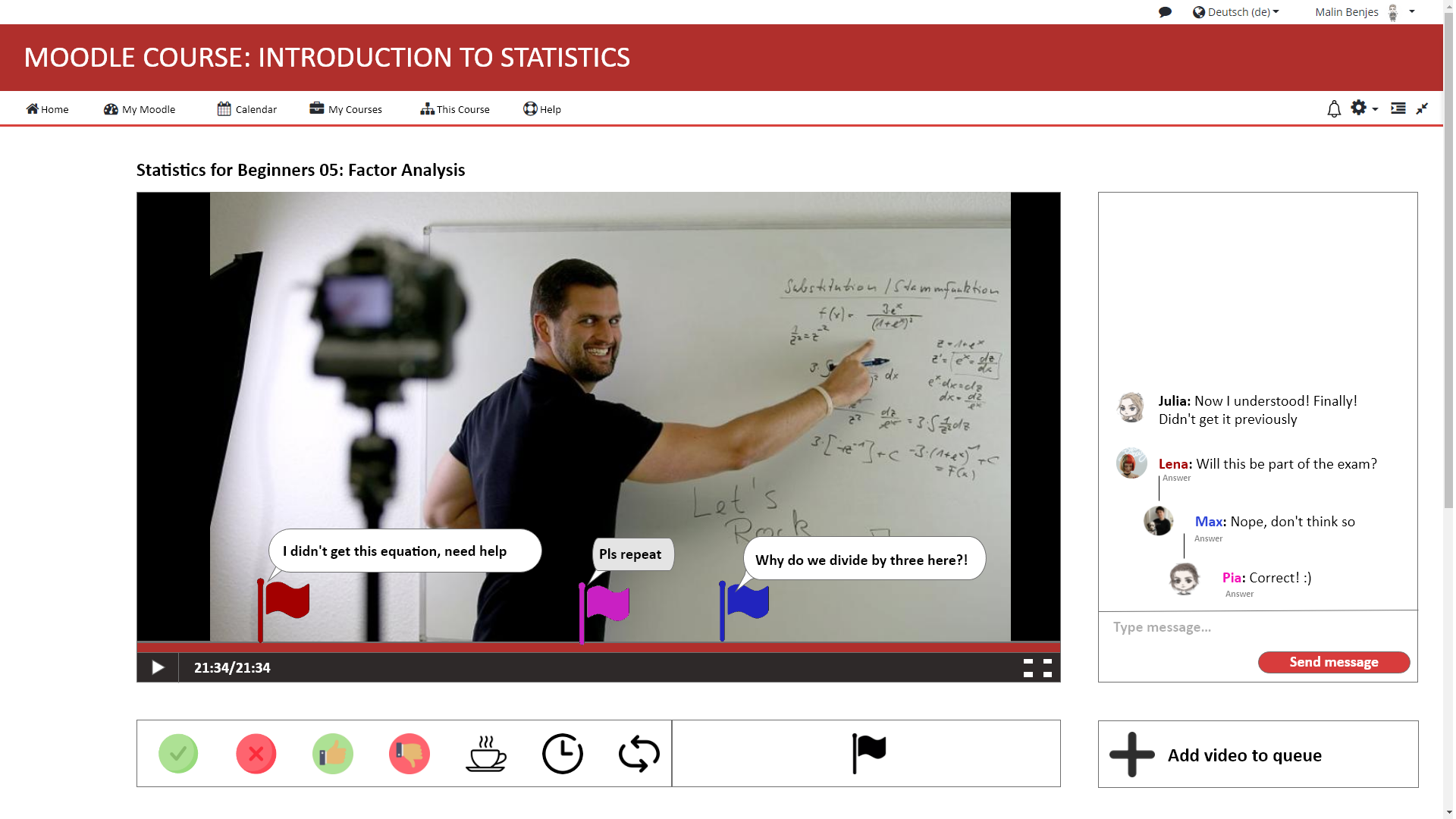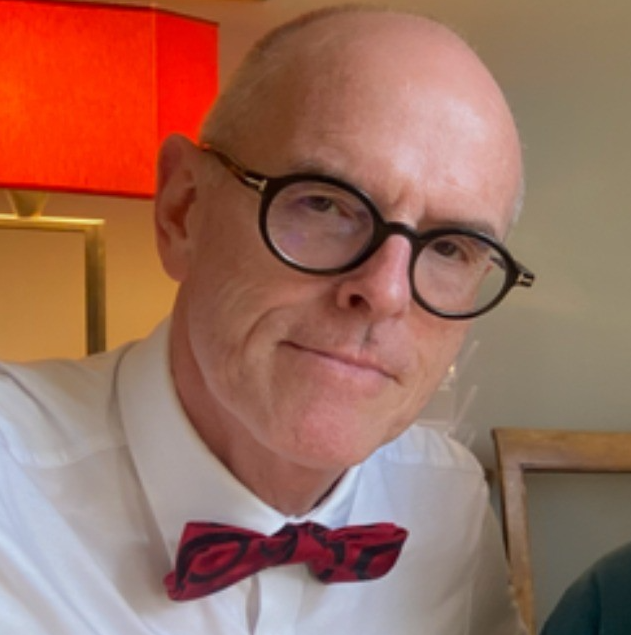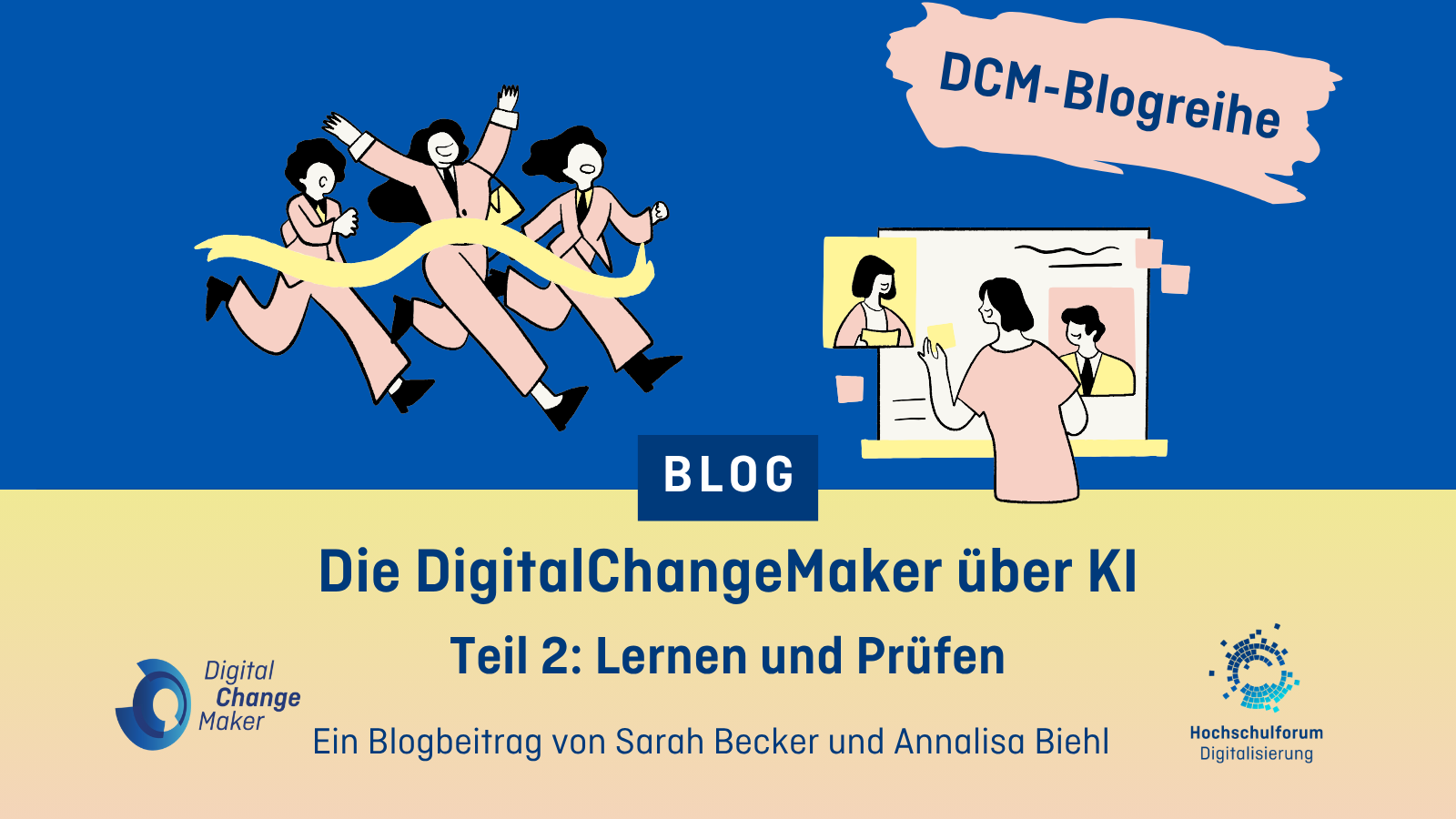Learnflix: A Cure for the Corona Blues
Learnflix: A Cure for the Corona Blues
25.03.21
In the series SemesterHack Spotlight we take a look behind the scenes at the winning projects of SemesterHack 2.0, which was held in November 2020 as part of the global hackathon DigiEduHack. Amy Pradell conducted the following interview with Dr Andreas Lingnau from the winning project “Learnflix.” It is one of 12 global finalists at DigiEduHack. 
Your project “Learnflix” won first place at SemesterHack 2.0, coming in ahead of the 28 eligible projects. First of all, congratulations to the entire team! Were you expecting to win?
Not at all! It came as a big surprise, especially since this was my very first hackathon.
A case of beginner’s luck, in other words?
Not quite. My teammate Dr Carolin Straßmann is a psychologist and had already taken part in a few hackathons herself, including SemesterHack 1.0. I must admit that I was sceptical at first: I mean, how can you develop a project in just 48 hours? We actually submitted the idea on a whim, not expecting much. But I was amazed at what the team achieved in such a short span of time. Furthermore, as a computational scientist, I do applied research and take an open-ended approach; in my field we sometimes just try things to see what works. So the hackathon format was a good fit for me.
Tell us more about Learnflix. What was your inspiration?
Learnflix is a simple tool that allows students to view videos together in a fun and interactive way. As life is increasingly lived online, the app brings people together for viewing parties to make everyday life at school much more enjoyable. This way, the app fosters a communal feeling and can reduce the isolation that many suffer from during the era of Covid-19. That is our guiding vision in a nutshell.
The initial inspiration came about when Carolin interviewed me for the University‘s podcast HRW Folgen. I was telling her about my experiences with students during the first Corona semester. I was struck by how poorly many students coped; they truly struggled with issues like time management, isolation, and plain old-fashioned loneliness. During the podcast we had an epiphany: We could help students by creating a platform where they could watch lectures together and discuss questions as they arise – a kind of “Netflix party,” so to speak.
Tell me more about your experience at SemesterHack 2.0. How far did you get during the hackathon and in the following months?
Our first task was to assemble a team. We recruited a core group of students based at universities from across Germany who saw our challenge and wanted to join us. The group split into pairs, working independently to produce a mock-up.
I am proud to say that we have built a truly interdisciplinary team, led by a computational scientist and a psychologist. The students reflected this diverse background as well. This approach offers the best of both worlds and gives them the rare opportunity to collaborate on an interdisciplinary project at an early stage. One thing is certain: This is a team that can really achieve something.
As for the current status: We expect to have a rough prototype by mid-April. A beta version of Learnflix is already integrated into Moodle at Ruhr West University of Applied Sciences in Bottrop and we hope that we can run a first real-world experiment with an integrated version 1.0 during the summer term.
Wow – so you went from initial idea to rough prototype in just six months. Impressive.
Thank you. It’s true, the project is really progressing at a fast pace. In my view, success boils down to two factors: First, I strongly believe in our vision; the overwhelmingly positive feedback I have received underlines the need for a product like Learnflix. Second, we could make fast progress thanks to generous financial support from Germany’s Federal Ministry of Education and Research (BMBF), who provided us with 30,000 Euros in seed funding to begin execution. DAAD also provided excellent support so that we could meet our goals within a tight timeframe. This funding covered programming costs and allowed us to retain three students from the hackathon to stay on the project.
I believe EdTech projects like this need the support of the community and institutions alike to succeed and flourish over the long-term.
What happens next?
We are currently working on two papers and the rough prototype. We of course hope to win the global competition of DigiEduHack and encourage readers to get out and vote.
And in five years? Could you describe your long-term vision for Learnflix?
With Learnflix, our goal is to connect students online and bring them together for a more enriching e-learning experience. As we move to a finished product and scale up, we hope that feedback from a large audience can help us improve Learnflix.
As we move beyond the pandemic, I imagine we will feature not just videos but other tools as well, such as integrated tasks that could be done in a group. By fostering this kind of group work, Learnflix offers enormous potential to support online learning even after we return to the campus. As I always tell my students, they should work in groups and explain the material to other students; that’s the proof that they have truly understood something.
Online campus culture is an issue that HFD has focused on since Day One of the Corona era. How can Learnflix make a positive impact on students’ everyday lives?
In my experience, many students struggled when we shifted to online-only learning without extra support from lecturers. Don’t forget that many lecturers were struggling, too: I thought I was well prepared because my research focuses on computer-supported collaborative learning. With Corona, however, we aren’t talking about online learning, but about “emergency remote teaching”.
My prediction is that students would have succeeded if they felt a stronger connection to their classmates. On a personal note, the more I work from home, the more isolated I feel. I believe that students feel the same. That’s why we need to overcome social isolation to support collaborative approaches. I strongly believe that learning in a group leads to better results than if you only work on your own.
Speaking for the HFD community, we look forward to trying out Learnflix for ourselves. We wish you all the best at the global finals of DigiEduHack!
Learnflix team members
Dr. Carolin Straßmann, Dr. Andreas Lingnau (both are lecturers at the Institute of Computer Science), André Helgert (Research assistant at the Institute of Computer Science) from the University of Applied Sciences Ruhr-West, Sebastian Brüne and Adriano Nicolosi from the University for Media in Stuttgart (both study public relations) as well as Malin Benjes from the University Leipzig, Anna Westenfelder Gil from Philipps-University Marburg and Alicia Neumann from University Duisburg-Essen (all three study psychology).



 Mauritz Danielsson
Mauritz Danielsson 
 Peter van der Hijden
Peter van der Hijden 
 Annalisa Biehl
Annalisa Biehl 